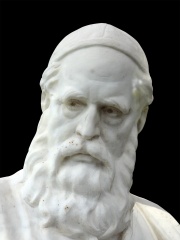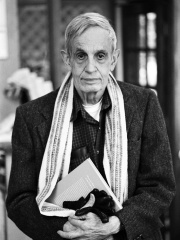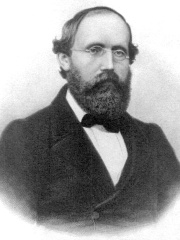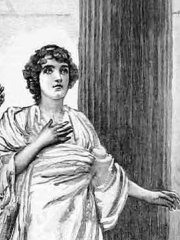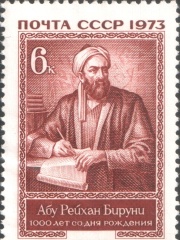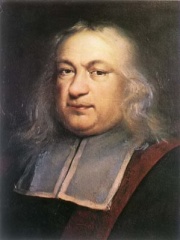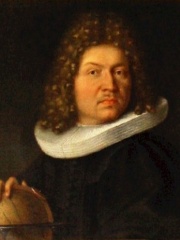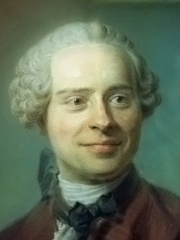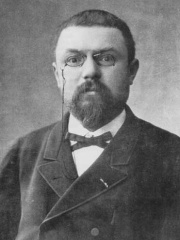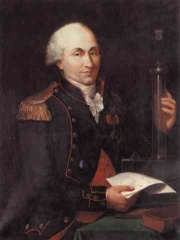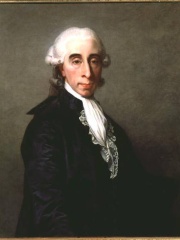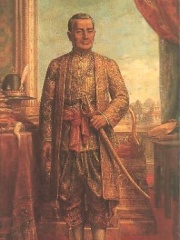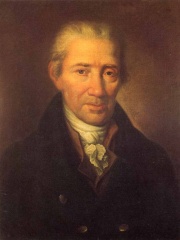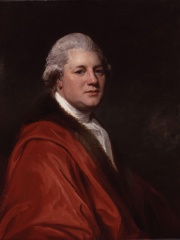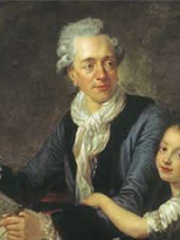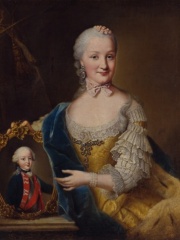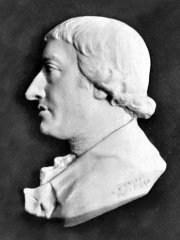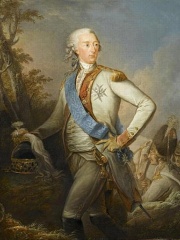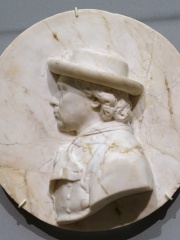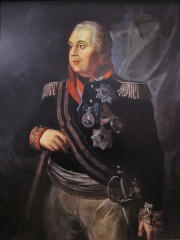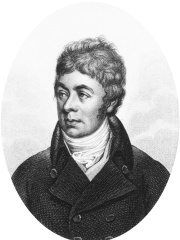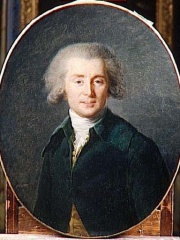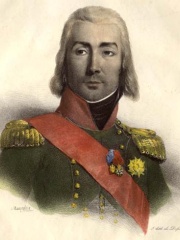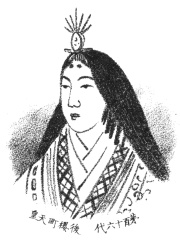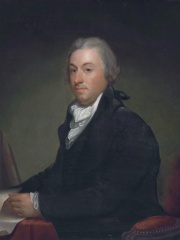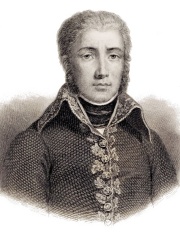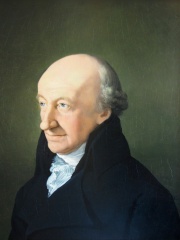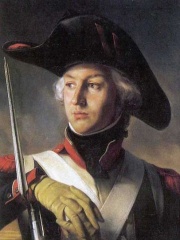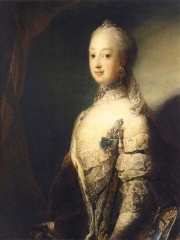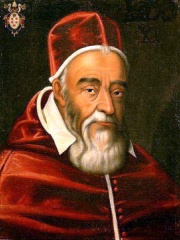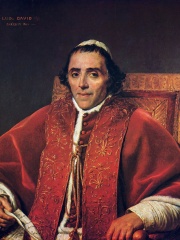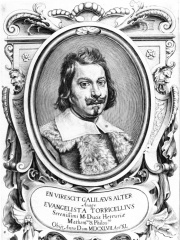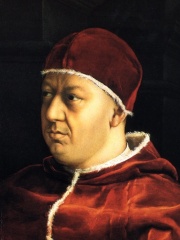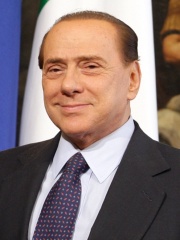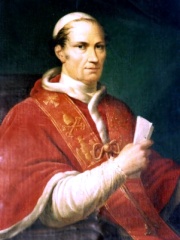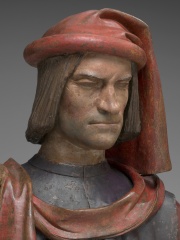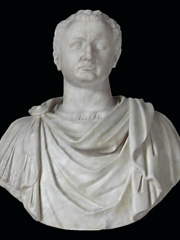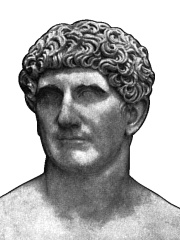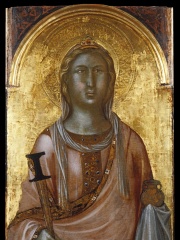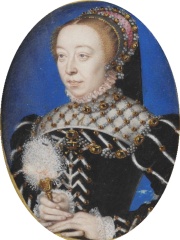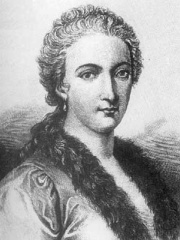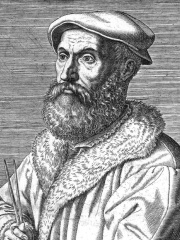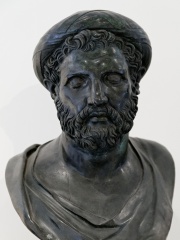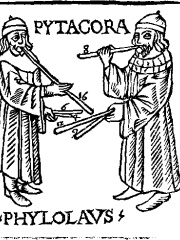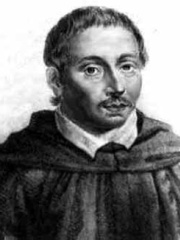Mathematician
Joseph-Louis Lagrange
1736 - 1813
EN.WIKIPEDIA PAGE VIEWS (PV)
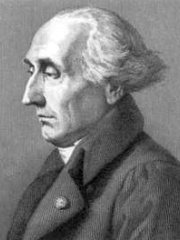
 Joseph-Louis Lagrange
Joseph-Louis Lagrange
His biography is available in 90 different languages on Wikipedia (up from 88 in 2024). Joseph-Louis Lagrange is the 14th most popular mathematician (up from 25th in 2024), the 70th most popular biography from Italy (up from 152nd in 2019) and the 3rd most popular Italian Mathematician.
Lagrange was most famous for his work in mathematics. He is best known for his work on the four-square theorem, which he proved in 1770.
Memorability Metrics
Page views of Joseph-Louis Lagrange by language
Among Mathematicians
Among mathematicians, Joseph-Louis Lagrange ranks 14 out of 1,004. Before him are Ada Lovelace, Leonhard Euler, Omar Khayyam, John Forbes Nash Jr., Bernhard Riemann, and Hypatia. After him are Al-Biruni, Pierre de Fermat, Bertrand Russell, Jacob Bernoulli, Jean le Rond d'Alembert, and Henri Poincaré.
Most Popular Mathematicians in Wikipedia
Go to all RankingsAda Lovelace
1815 - 1852
HPI: 87.83
Rank: 8
Leonhard Euler
1707 - 1783
HPI: 87.60
Rank: 9
Omar Khayyam
1048 - 1131
HPI: 86.69
Rank: 10
John Forbes Nash Jr.
1928 - 2015
HPI: 85.78
Rank: 11
Bernhard Riemann
1826 - 1866
HPI: 85.32
Rank: 12
Hypatia
350 - 415
HPI: 84.85
Rank: 13
Joseph-Louis Lagrange
1736 - 1813
HPI: 84.17
Rank: 14
Al-Biruni
973 - 1048
HPI: 83.73
Rank: 15
Pierre de Fermat
1601 - 1665
HPI: 83.45
Rank: 16
Bertrand Russell
1872 - 1970
HPI: 82.69
Rank: 17
Jacob Bernoulli
1654 - 1705
HPI: 81.66
Rank: 18
Jean le Rond d'Alembert
1717 - 1783
HPI: 81.57
Rank: 19
Henri Poincaré
1854 - 1912
HPI: 81.48
Rank: 20
Contemporaries
Among people born in 1736, Joseph-Louis Lagrange ranks 2. Before him is James Watt. After him are Charles-Augustin de Coulomb, Jean Sylvain Bailly, Rama I, Johann Georg Albrechtsberger, James Macpherson, Claude Nicolas Ledoux, Princess Friederike of Brandenburg-Schwedt, Rudolf Erich Raspe, Louis Joseph, Prince of Condé, and Franz Xaver Messerschmidt. Among people deceased in 1813, Joseph-Louis Lagrange ranks 1. After him are Mikhail Kutuzov, Józef Poniatowski, George Shaw, André Grétry, Jean-Baptiste Bessières, Empress Go-Sakuramachi, Robert R. Livingston, Jean Victor Marie Moreau, Christoph Martin Wieland, Jean-Andoche Junot, and Sophia Magdalena of Denmark.
Others Born in 1736
Go to all RankingsJames Watt
INVENTOR
1736 - 1819
HPI: 88.47
Rank: 1
Joseph-Louis Lagrange
MATHEMATICIAN
1736 - 1813
HPI: 84.17
Rank: 2
Charles-Augustin de Coulomb
PHYSICIST
1736 - 1806
HPI: 80.87
Rank: 3
Jean Sylvain Bailly
POLITICIAN
1736 - 1793
HPI: 70.54
Rank: 4
Rama I
POLITICIAN
1736 - 1809
HPI: 69.92
Rank: 5
Johann Georg Albrechtsberger
COMPOSER
1736 - 1809
HPI: 69.19
Rank: 6
James Macpherson
POLITICIAN
1736 - 1796
HPI: 68.51
Rank: 7
Claude Nicolas Ledoux
ARCHITECT
1736 - 1806
HPI: 67.43
Rank: 8
Princess Friederike of Brandenburg-Schwedt
POLITICIAN
1736 - 1798
HPI: 66.54
Rank: 9
Rudolf Erich Raspe
WRITER
1736 - 1794
HPI: 66.35
Rank: 10
Louis Joseph, Prince of Condé
POLITICIAN
1736 - 1818
HPI: 64.96
Rank: 11
Franz Xaver Messerschmidt
SCULPTOR
1736 - 1783
HPI: 64.77
Rank: 12
Others Deceased in 1813
Go to all RankingsJoseph-Louis Lagrange
MATHEMATICIAN
1736 - 1813
HPI: 84.17
Rank: 1
Mikhail Kutuzov
MILITARY PERSONNEL
1745 - 1813
HPI: 77.48
Rank: 2
Józef Poniatowski
MILITARY PERSONNEL
1763 - 1813
HPI: 72.70
Rank: 3
George Shaw
BIOLOGIST
1751 - 1813
HPI: 72.46
Rank: 4
André Grétry
COMPOSER
1741 - 1813
HPI: 72.23
Rank: 5
Jean-Baptiste Bessières
MILITARY PERSONNEL
1768 - 1813
HPI: 71.52
Rank: 6
Empress Go-Sakuramachi
POLITICIAN
1740 - 1813
HPI: 70.96
Rank: 7
Robert R. Livingston
POLITICIAN
1746 - 1813
HPI: 70.86
Rank: 8
Jean Victor Marie Moreau
MILITARY PERSONNEL
1763 - 1813
HPI: 70.21
Rank: 9
Christoph Martin Wieland
WRITER
1733 - 1813
HPI: 69.89
Rank: 10
Jean-Andoche Junot
MILITARY PERSONNEL
1771 - 1813
HPI: 68.47
Rank: 11
Sophia Magdalena of Denmark
COMPANION
1746 - 1813
HPI: 68.45
Rank: 12
In Italy
Among people born in Italy, Joseph-Louis Lagrange ranks 70 out of NaN. Before him are Pope Leo XI (1535), Pope Pius VII (1742), Evangelista Torricelli (1608), Pope Leo X (1475), Silvio Berlusconi (1936), and Pope Leo XII (1760). After him are Lorenzo de' Medici (1449), Titus (41), Mark Antony (-83), Saint Lucy (283), Lucretius (-94), and Catherine de' Medici (1519).
Others born in Italy
Go to all RankingsPope Leo XI
RELIGIOUS FIGURE
1535 - 1605
HPI: 84.32
Rank: 64
Pope Pius VII
RELIGIOUS FIGURE
1742 - 1823
HPI: 84.28
Rank: 65
Evangelista Torricelli
PHYSICIST
1608 - 1647
HPI: 84.27
Rank: 66
Pope Leo X
RELIGIOUS FIGURE
1475 - 1521
HPI: 84.22
Rank: 67
Silvio Berlusconi
POLITICIAN
1936 - 2023
HPI: 84.19
Rank: 68
Pope Leo XII
RELIGIOUS FIGURE
1760 - 1829
HPI: 84.18
Rank: 69
Joseph-Louis Lagrange
MATHEMATICIAN
1736 - 1813
HPI: 84.17
Rank: 70
Lorenzo de' Medici
POLITICIAN
1449 - 1492
HPI: 84.14
Rank: 71
Titus
POLITICIAN
41 - 81
HPI: 84.07
Rank: 72
Mark Antony
POLITICIAN
83 BC - 30 BC
HPI: 83.97
Rank: 73
Saint Lucy
RELIGIOUS FIGURE
283 - 304
HPI: 83.96
Rank: 74
Lucretius
PHILOSOPHER
94 BC - 55 BC
HPI: 83.96
Rank: 75
Catherine de' Medici
COMPANION
1519 - 1589
HPI: 83.94
Rank: 76
Among Mathematicians In Italy
Among mathematicians born in Italy, Joseph-Louis Lagrange ranks 3. Before him are Archimedes (-287), and Fibonacci (1170). After him are Gerolamo Cardano (1501), Luca Pacioli (1445), Maria Gaetana Agnesi (1718), Niccolò Fontana Tartaglia (1499), Archytas (-428), Philolaus (-470), Giuseppe Peano (1858), Bonaventura Cavalieri (1598), and Lodovico Ferrari (1522).
Archimedes
287 BC - 212 BC
HPI: 93.41
Rank: 1
Fibonacci
1170 - 1240
HPI: 89.74
Rank: 2
Joseph-Louis Lagrange
1736 - 1813
HPI: 84.17
Rank: 3
Gerolamo Cardano
1501 - 1576
HPI: 79.79
Rank: 4
Luca Pacioli
1445 - 1517
HPI: 79.39
Rank: 5
Maria Gaetana Agnesi
1718 - 1799
HPI: 76.89
Rank: 6
Niccolò Fontana Tartaglia
1499 - 1557
HPI: 76.65
Rank: 7
Archytas
428 BC - 347 BC
HPI: 75.95
Rank: 8
Philolaus
470 BC - 390 BC
HPI: 75.48
Rank: 9
Giuseppe Peano
1858 - 1932
HPI: 74.06
Rank: 10
Bonaventura Cavalieri
1598 - 1647
HPI: 73.59
Rank: 11
Lodovico Ferrari
1522 - 1565
HPI: 70.38
Rank: 12


